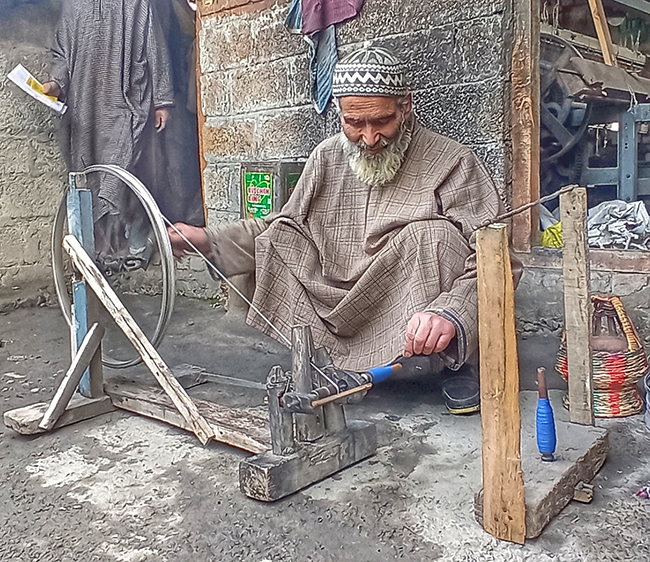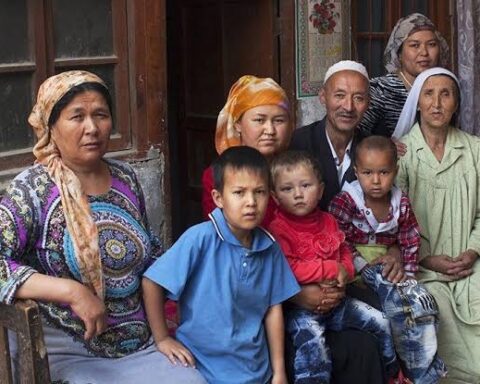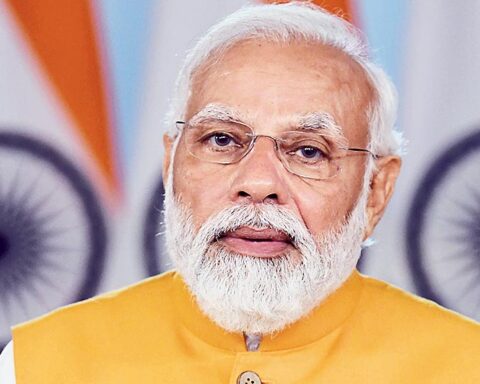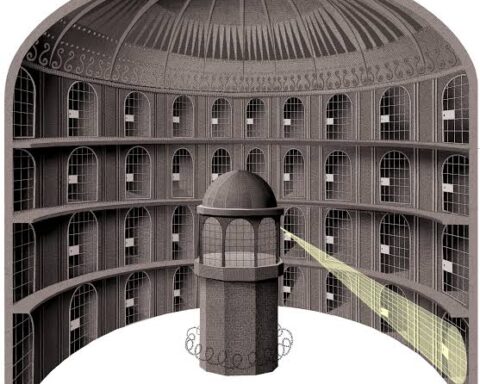by Muzafar Mir
Every sane person is enjoined to earn a living, as well as those who are unable to work should rely on their prosperous ones. It is the responsibility of one’s prosperous kin to provide for someone who is unable to support themselves or their family and lacks personal property for necessities. However, not every poor individual is fortunate enough to have wealthy ones who can shoulder this responsibility. This raises concerns about the fate of widows, orphans, the elderly, individuals with mental or physical disabilities such as the permanently diseased or blind, and others in similar conditions. These individuals can barely sustain themselves and cannot rely on their already struggling nearer for support. It would be unjust to abandon them to the mercy of society or their fate, subjecting them to poverty and hunger, especially when there are affluent individuals in society who could assist. They should not be deprived of any possible help. Islam is one of the major religions of the world and has enjoined every sane person to earn his living. As Allah commands in the Qur’an
“…. Your property which Allah has made for you a means of support.” 5:4
Abdullah Yousuf Ali comments on this verse very aptly with these remarks,
“Your property: Ultimately all property belongs to the community, and is intended for the support of you, i.e., community. it is held in trust by a particular individual. If he is incapable, he is put aside, gently. and with kindness. While his incapacity remains, the duties and responsibilities devolve on his guardian even more strictly than in the case of the original owner: for he may not take any of the profits for himself unless he is poor, and in that case, his remuneration for his trouble must be on a scale that is no more than just and reasonable.”
The Qur’an also gives clear instructions about this world for humans, and says:
“…Nor forget thy portion in this world…” 28:77
So, it is clear from the Qur’anic verses that the economy is most important and fundamental for the existence of the human beings of this world. The whole creatures of this world are made by Allah to be subservient to humans, so, that all humans can be benefited from the creatures of this world without any gap and exploitation, and the future should be taken into consideration. But the earnings should be as per the spirit of Islam i.e., lawful earnings as per the Islamic Shari’ah. Poverty remains an enduring global challenge, impacting millions of individuals and communities worldwide. Governments, organizations, and individuals continuously strive to find effective strategies to address poverty and empower marginalized populations. In this endeavor, Islamic philanthropy, specifically the concept of Zakat, has emerged as a potent tool for poverty alleviation. Zakat, one of the Five Pillars of Islam, represents an obligatory form of charitable giving for financially capable Muslims (Sahib-e-Nisab). Zakat can play an important role in uplifting communities and eradicating poverty when zakat can be understood as fiscal policy or in fiscal measures. Zakat is rooted in the Islamic faith and represents an essential component of social justice and wealth redistribution. Literally translated as “purification” and “growth,” Zakat embodies the idea of purifying one’s wealth by giving a specific portion to those in need, ultimately leading to the growth and prosperity of society. As Allah mentioned in the Qur’an
“Take, [O, Muhammad], from their wealth a charity by which you purify them and cause them to increase, and invoke (Allah‘s blessings) upon them. Indeed, your invocations are reassurance for them. And Allah is Hearing and Knowing.” 9:103.
It is obligatory for Muslims whose wealth reaches the Nisab (minimum threshold) after the deduction of necessary expenses to pay the Zakat. Zakat is guided by several principles that differentiate it from conventional forms of charity. Firstly, Zakat is obligatory, serving as a religious duty for Muslims. Allah instructs humankind in Qur’an,
“…And establish regular Prayer and give regular Charity; and loan to Allah a Beautiful Loan…” 20:73
“And be steadfast in prayer; practice regular charity; and bow down your heads with those who bow down (in worship).” 2:43
It fosters a sense of communal responsibility, reminding individuals of their duty towards the less fortunate. Secondly, Zakat promotes wealth redistribution by collecting funds from affluent individuals and distributing them to those in need. The distribution of wealth is a fundamental and essential concern in economics. It is a highly debated topic among economists, focusing on the kind of distribution that should be implemented to prevent financial crises and address disparities among individuals and nations. The Islamic system is considered divine and human-friendly, encompassing the best characteristics based on Sharia law. It is observed that the Islamic theory presents an efficient and harmonious approach to wealth distribution, which could play a pivotal role in eliminating poverty and involving all members of society in wealth production, even those who are not actively engaged. Additionally, it is found that the Islamic theory of distribution establishes a realistic and practical economic system that allows everyone in society to fulfill their basic needs fairly, (As per the Maqasid-ul Shari’ah) while also seeking to mitigate wealth concentration. Islam is completely against the concentration of wealth in a few hands as Allah says in the most incontrovertible terms,
“…so that this wealth may not circulate solely among the rich from among you….” 59:7
This redistribution mechanism helps address wealth disparities within society, ensuring a fairer distribution of resources. Distribution and redistribution of wealth is conducted mainly by two heads primary and secondary which will be discussed in a separate article in this series. This distribution of wealth through Zakat emphasizes direct assistance, allowing beneficiaries to access essential resources, such as food, shelter, education, healthcare, and livelihood opportunities.
Zakat plays a crucial role in poverty alleviation, as its systematic collection and distribution offer sustainable solutions to uplift individuals and communities. By providing direct financial aid, Zakat helps alleviate immediate poverty by meeting basic needs. This assistance ensures that vulnerable individuals and families have access to food, clean water, and healthcare services. Moreover, Zakat funds can be used to invest in income-generating projects, vocational training, and microfinance initiatives, empowering recipients to become self-reliant and break the cycle of poverty. The total Muslim population of Jammu and Kashmir is 67% which is the largest in India, so the collective Zakat system may be used for poverty elevation in Kashmir as well. The poor should be divided into two categories one is productive poor and the second one is non-productive poor the zakat should be distributed based on 30/70 in these two categories. Non-productive includes the elderly, the disabled, the chronically ill, etc., who have no source of income and whose economic condition is depressed, and who need constant and continuous support. The amount of Zakat spent on them would be 30 percent. Among the overall beneficiaries are those in the productive group who cannot start their own businesses due to lack of capital, some who can stand on their own feet if they are taught a skill and given support. These people (Male/Female) can be self-sufficient if provided with machinery or equipment and tools. After supporting them with the Zakat they will become self-sufficient and, in the future may be able to give Zakat on their own. While the economic aspect, giving zakat to this group means growing purchasing power for economic goods. This model is presently workable in South Africa where only two percents are Muslim population and in Indonesia. Zakat also supports education initiatives, ensuring that children from impoverished backgrounds have access to quality education, which can significantly improve their prospects for a better future. Zakat possesses the potential to serve as a catalyst for sustainable development, extending beyond its immediate relief function by addressing the underlying causes of poverty. Islamic scholars emphasize the significance of utilizing Zakat funds to support community development projects that enhance infrastructure, provide clean energy solutions, promote agriculture, and improve healthcare facilities. These investments empower communities to devise long-term solutions, enabling them to achieve self-sufficiency and resilience in the face of economic challenges. Through fostering economic growth, Zakat contributes to the overall well-being and progress of society. It serves as a powerful tool for alleviating poverty, promoting social justice, and empowering marginalized communities. By adhering to the principles of wealth redistribution and direct assistance, Zakat helps provide immediate relief, fosters sustainable development, and creates opportunities for those who are economically less fortunate.
( To be concluded)
The writer is pursuing Ph.D in Islamic Studies at AMU. He works on Working on Monetary and Fiscal policy in Islam.








